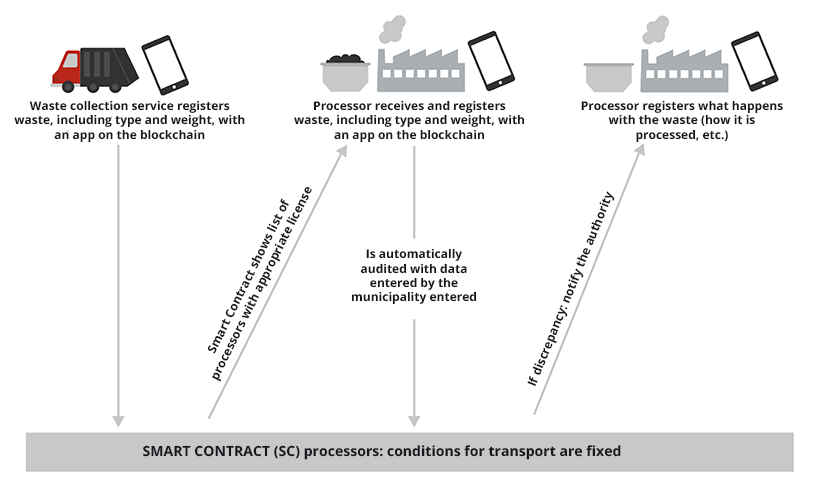Blockchain in the waste industry
Blockchain is set to change the world. There's hardly any industry that will remain untouched by its disruptive technology. Sectors such as insurance, and supply chain management are already starting to adopt it. Now the time has come for the waste industry to seriously start adopting blockchain, and the Netherlands is doing just that.
This page is a record of Dutch progress in blockchain adoption in the waste industry.
Afvalcontainershop.nl is looking forward to the possibilities blockchain technology has to offer the sector and is dedicated to contribute to the transition towards a smart economy. To prepare itself and its customers for the imminent future, Afvalcontainershop.nl now accepts cryptocurrencies for its services:
List of accepted cryptocurrencies
- Bitcoin (BTC)
- Bitcoin Cash (BCH)
- Decred (DCR)
- Digibyte (DGB)
- Dogecoin (Doge)
- Dash (Dash)
- Ethereum (ETH)
- Ethereum Classic (ETC)
- Groestl (GRS)
- Litecoin (LTC)
- PIVX (PIVX)
- Qtum (QTUM)
- Ripple (XRP)
- Verge (XVG)
- Zcash (ZEC)
This list will be expanded at a later date.
Current applications of blockchain in the waste industry in the Netherlands
Let's examine how the Netherlands is integrating blockchain in its waste management. Take, for example, the municipality utrecht. Utrecht is the most sustainable municipality of the Netherlands, a recent study revealed that Utrecht currently lags behind in terms of waste collection of private homes. This is the exact context, in which Utrecht decided to deploy its blockchain pilot.
This blockchain project aims to archieve its goal of utilizing smart contracts to improve the waste disposal chain. The chain ought to become more transparent and cheap, while law enforcement of it shouls become easier by taking advantage of the tamper proof properties of blockchain technology.

Incentivising waste reduction
Utrecht also researches the feasibility of registering weekly anonymised household waste production through the blockchain. Individuals will be rewarded for producing less waste. Because the blockchain is an immutable ledger, this system would also overcome possible cases of fraudulent registration of waste quentities.By rewarding its citizens to live a more sustainable life, through cryptography-made incentives, Utrecht aims to remain the most sustainable municipality of the Netherlands.
Dutch minisrty of infraftructure adopts blockchain
In Addition to the efforts of copmpanies and local goverments to put the waste industry on the blockchain, the Dutch ministry of infrastrucure and water had, as of april 2018, commissioned the use of blockchain for the export of waste to Belgium. The ministry of infrastructure sees oppertunities in the field of automation, financial security, lisensing and reducing the labour intersiveness of exporting waste.







